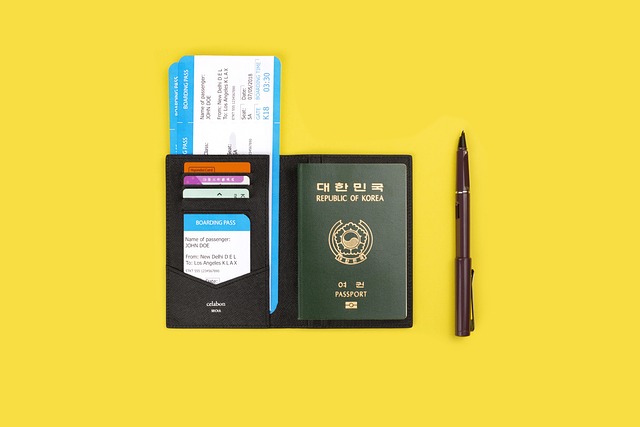Translation services for UK Medical Case Studies play a critical role in enhancing medical education and research by providing accessible, accurate translations of complex patient scenarios. These services address linguistic gaps, foster culturally sensitive healthcare providers, and enrich learning experiences. Through leveraging specialized glossaries, native speaker revisors, translation memory tools, ethical standards, and emerging technologies like AI, these services ensure high-quality translations that improve diagnoses, treatments, and healthcare outcomes across diverse linguistic communities in the UK.
In the UK, medical case studies play a pivotal role in enhancing patient care and understanding complex healthcare scenarios. However, interpreting these crucial documents can pose significant challenges due to intricate medical terminology and diverse cultural contexts. This article explores the importance of translating case studies accurately, highlighting the challenges involved and the vital role professional translation services play. We delve into best practices to ensure accessibility and effectiveness, ultimately improving patient care through better-understood medical insights. Discover how these strategies are shaping the future of UK healthcare with advanced translation services for medical case studies.
- Understanding the Significance of Medical Case Studies in the UK
- Challenges in Interpreting Complex Medical Terminology
- The Role of Professional Translation Services
- Best Practices for Accurate and Effective Translation
- Enhancing Patient Care through Accessible Case Studies
- Future Trends in Medical Translation for UK Healthcare
Understanding the Significance of Medical Case Studies in the UK

In the UK, medical case studies play a pivotal role in healthcare education and research. They provide real-world examples that help students and professionals understand complex medical concepts and improve diagnostic and treatment skills. These case studies offer a unique perspective by presenting actual patient scenarios, allowing readers to apply theoretical knowledge in practical contexts. This interactive learning approach fosters critical thinking and enhances decision-making abilities.
Translation services for UK Medical Case Studies are essential to ensure accessibility and comprehension. Given the diverse linguistic background of patients and healthcare professionals, accurate translation ensures that case studies reach a broader audience. It enables medical educators and researchers to incorporate a wide range of global case studies, enriching the learning experience and exposing students to international medical practices. This, in turn, contributes to the development of culturally sensitive and globally aware healthcare providers.
Challenges in Interpreting Complex Medical Terminology

Case studies, especially in the medical domain, often employ complex terminology and jargon that can be challenging to interpret. When translating UK medical case studies for a broader audience, understanding and overcoming these linguistic hurdles is crucial. The nuances of medical language require skilled translators who are not only fluent but also possess a deep knowledge of both the source and target languages.
Translation services for UK Medical Case Studies must pay close attention to maintaining accuracy while ensuring readability. Medical terms often have precise definitions, and their incorrect translation can lead to miscommunication or misinterpretation. Professional translators employ specialized glossaries and resources to handle such complexities, ensuring that the translated text remains faithful to the original intent and scientific rigour.
The Role of Professional Translation Services

In the realm of medical research and healthcare, clear and accurate communication is paramount. This is where professional translation services play a pivotal role for case studies conducted in the UK. With language barriers being a common challenge, these services ensure that complex medical information is translated seamlessly, facilitating better understanding across diverse linguistic backgrounds.
Translation experts with specialized knowledge in medicine are essential to capture intricate details and technical terminology accurately. This is particularly crucial when translating case studies as it involves conveying precise diagnoses, treatments, and patient outcomes. By enlisting professional translation services for UK medical case studies, researchers can ensure that their findings reach a broader audience, fostering better collaboration and improved healthcare solutions on a national scale.
Best Practices for Accurate and Effective Translation

When translating UK medical case studies, accuracy and effectiveness are paramount. Best practices involve engaging professional translators with expertise in medical terminology to ensure precise communication of complex information. Using translation memory tools and performing thorough quality assurance checks help maintain consistency across documents and reduce potential errors. Additionally, adhering to ethical standards and data protection regulations is crucial when handling sensitive medical data during the translation process.
For translation services catering to UK medical case studies, utilizing native English speakers as revisers is a strategic step. These revisors can catch subtle nuances, cultural references, and idiomatic expressions that may have been missed during the initial translation. Incorporating feedback loops and client reviews further enhances the quality of translations, fostering trust and reliability among healthcare professionals who rely on these case studies for decision-making and research purposes.
Enhancing Patient Care through Accessible Case Studies

In today’s diverse and interconnected healthcare landscape, ensuring clear communication is paramount. Translation services play a pivotal role in enhancing patient care by making medical case studies accessible to a broader audience. By bridging the language gap, these services enable healthcare professionals, researchers, and patients across the UK to benefit from valuable insights shared through case studies.
Accessible case studies provide a wealth of information, offering practical examples that illustrate complex medical concepts. They serve as powerful educational tools, fostering better understanding among diverse patient populations and clinical teams. Moreover, by translating these studies, healthcare providers can tailor their approaches to meet the specific needs of different communities, ultimately improving patient outcomes and care quality.
Future Trends in Medical Translation for UK Healthcare

The future of medical translation in the UK healthcare sector is set to be transformed by technological advancements and a growing demand for accessible, accurate, and culturally sensitive care. As the NHS continues to serve a diverse population, translation services for UK medical case studies will play an increasingly vital role in bridging communication gaps and ensuring equitable patient outcomes.
Artificial Intelligence (AI) and machine learning are likely to be at the forefront of these developments, enabling more efficient and precise translations. These technologies can process vast amounts of medical data, including complex terminologies and cultural nuances, in record time. However, it’s essential to strike a balance between automation and human expertise. Human translators with medical backgrounds will remain indispensable for reviewing and validating AI-generated translations, ensuring accuracy, and capturing subtle contextual meanings that machines might miss.
The UK healthcare sector can greatly benefit from translating medical case studies, making complex information more accessible and enhancing patient care. By addressing challenges in interpreting medical terminology, leveraging professional translation services, and adopting best practices, the UK can ensure accurate and effective communication. This approach not only improves understanding among healthcare professionals but also fosters a more inclusive environment for patients from diverse linguistic backgrounds. As we look to the future, innovative technologies and trends in medical translation will continue to revolutionize patient care, making it more efficient and accessible across the board. Translation services for UK Medical Case Studies play a pivotal role in achieving these goals, ultimately enhancing the quality of healthcare delivery.
